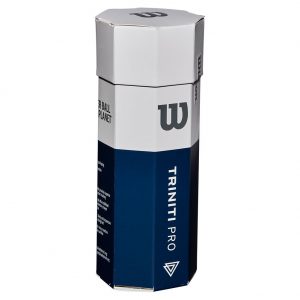“Why are there so many different types of tennis balls?”
This is a very common question among beginners and experienced tennis players alike. Most of the balls feel and certainly look the same, and luckily, they all share the same tennis ball smell. Despite their similarities, they have subtle yet serious differences that could really change your game. First of all, there are three main classes of Tennis Balls: Professional, Championship, and Practice balls. All three serve their purpose, and by no means should you just buy based on price. There are quite a few determining factors on which balls to buy including skill level, age, court surface, amount of play, and many more.Professional Tennis Ball
A professional tennis ball has premium, high quality felt that doesn’t fray easily. When you play in a USTA tournament or league, these are the balls that the tourney organizer hands you for your match. Coming out of the can near perfect, these balls have a high level of pressure upon the cracking of the can, and will hold that pressure throughout the match that you play. Many times these balls get scraped after first use, but they are still serviceable for a bit after. Best Quality: Wilson US Open Best Value: Penn Tour Extra Duty 4 Ball Can Tennis Balls Best New Release: Dunlop Australian Open Tennis Balls [gallery link="none" ids="23794,15382,15381"]Championship Tennis Ball
Championship balls are a step down from professional, in both pressure and felt quality, but also in price. This style is best suited for practice play or possibly junior's tournaments because of their great durability and overall good quality. These balls are designed to go as many rounds are you are willing to, so don’t be afraid to pop the cap early. Best Quality: Wilson Championship Extra Duty Tennis Balls Best Can: Babolat Gold All-Court Tennis Balls Best Value: Penn Championship Extra Duty Tennis Balls [gallery link="none" ids="15383,15385,15384"]Practice Tennis Ball
Practice balls are lower end balls not intended for USTA play - these are for practice. Great for ball machines and loading up a ball basket. Many coaches across the country use these due though their insanely long lifespan and of course, price. Now there are two types of practice balls. Practice or coach balls still come in a can, but are usually just a tad lower in quality. The second are pressureless balls. They’re long lasting, firm balls intended for ball machine use. They do not play like a regular ball but last longer, as they are harder and much denser. Best Practice Ball: Penn Coach Tennis Balls Best Pressureless Practice Ball: Tourna Pressureless Tennis Balls [gallery columns="2" link="none" ids="15390,15387"]Wilson Triniti Tennis Balls (something new!)
Wilson, to increase their sustainability efforts, manufactured a tennis ball that reduces waste. These balls do not come in a can, instead they come in a cardboard sleeve and feature a revolutionary Engage core. The special design uses a high-quality polymer to thicken the core while maintaining weight and balance characteristics. Two versions are available: Triniti Pro (for intermediate and advanced players) and Triniti (for everyone and a slightly slower playing experience). These balls can work well in teaching baskets and are perfect for coaches who need tennis balls to last a little longer.
The surface you play on will also determine which ball you should use. There are four categories: Regular Duty or All-Court, Extra Duty or Hard-court, Grass Court, and Hi-Altitude.
-
- Regular duty balls: meant for soft clay courts, and indoor courts. They have a softer felt but do not last as long on hard courts.
- Extra duty tennis balls: meant for hard courts. The felt on the ball is woven with more wool to help withstand harder courts, and make them last longer. Best for outdoor hard courts!
- Grass Court balls: regular duty balls but with a stain-resistant treatment on the felt the grass doesn’t change their color.
- Hi-Altitude balls: meant to be played in altitudes of 4,000 feet or higher. A normal ball tends to fly at these altitudes.



















